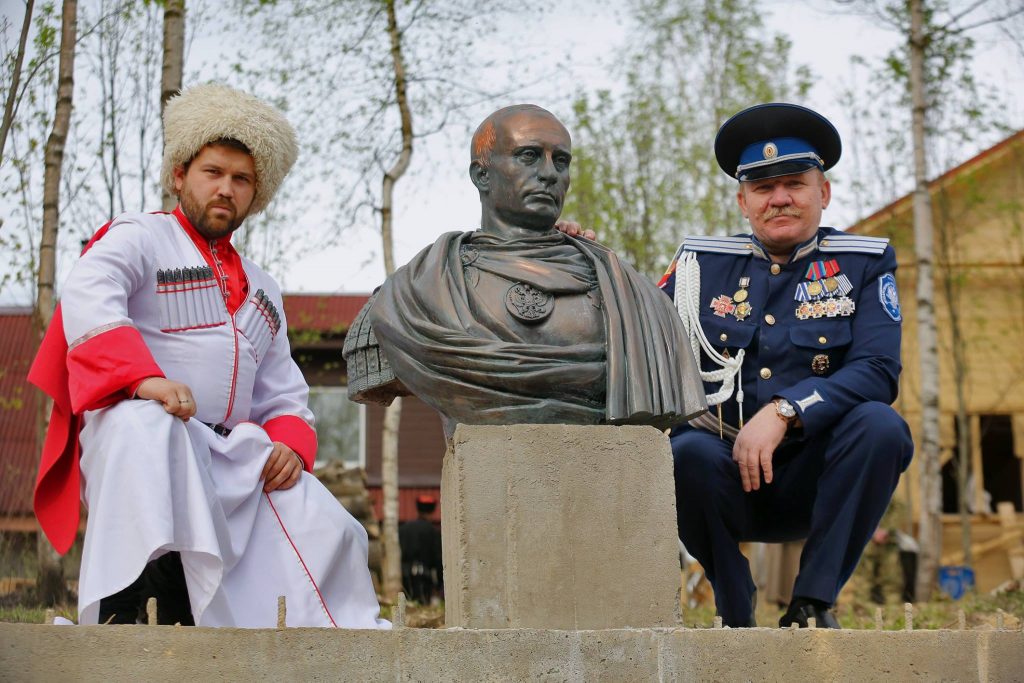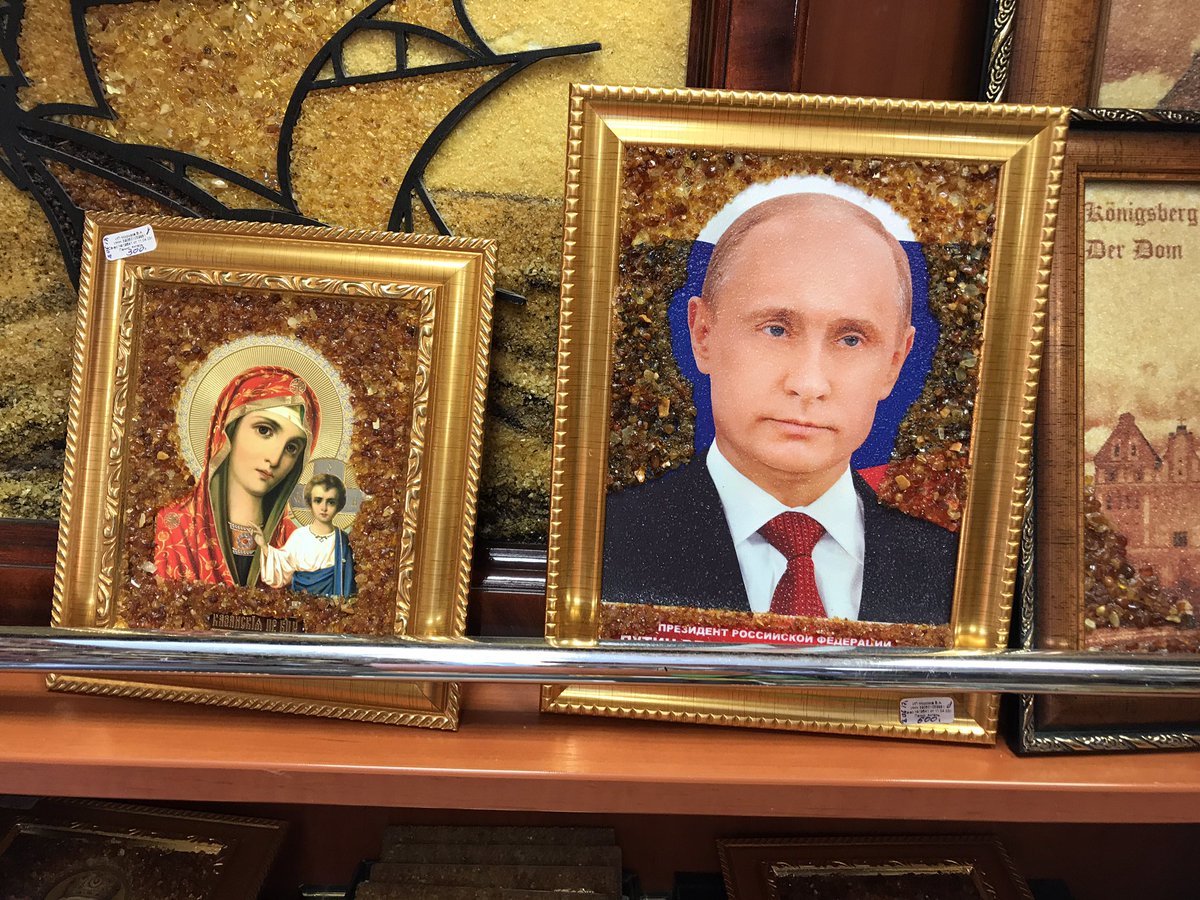Russia has never had a state in the normal sense of the term and does not have one today, Aleksey Polikovsky argues; instead, it has been and remains far more like the chiefdoms that have existed in various nomadic societies, Dmitry Oreshkin says, an arrangement that requires expansion, can’t make progress and is doomed to failure.
Their articles, “A Country without a State” and “State and Chiefdom,” together form both an indictment of what Russians and others call “the Russian state” and a suggestion as to how it should be understood.
Polikovsky, a commentator for Novaya gazeta, says that “the state in the understanding of a normal contemporary individual who doesn’t eat his fellow tribal members like Bokassa or kill his fellow citizens like Assad is a mechanism of creating and supporting normal life … In the state, there is nothing holy or sacred, nothing elevated or pathetic. It is only a mechanism.”
That, which people call the state in Russia, is completely different.
“All this did not begin recently,” he continues. “For hundreds of years, the state [gosudarstvo] has existed outside and over the people, not for the people but against them,” Polikovsky says.

“The sadism of Ivan the Terrible and the sadism of Joseph Stalin are divided by four centuries. But in fact, the torture chambers of the two are neighbors. Malyuta Skuratov would have been a general at the Lubyanka. Yezhov and Abakumov could have successfully served in the oprichniki.”
“The sadism is the same, the insanity is the same, the power for its own sake is the same, even the tortures are one and the same,” he points out. “Four centuries passed, but the gosudarstvo didn’t change.”
And this leads to the inevitable conclusion that “there is no state in Russia. Theft, deception, force, and war all are present but the state is not.” That, which is called the state in Russia, doesn’t have the built-in defenses against fools that states do. And “the results of this are before us.”
What all this looks like, Polikovsky says, recalls the movie Jurassic Park in which a dinosaur breaks into modern times. So too is what many call the Russian state: it is very much a survival of the past that somehow has continued to exist in a world that has given rise to a very different kind of animal.
And here is the tragedy, he concludes. “The gosudarstvo in its current state is not capable of carrying out any reforms. It can only generate hatred and launch domestic and foreign wars. Therefore, the only reform which is genuinely needed is a reform of the gosudarstvo itself.”

Oreshkin for his apart agrees that there is no state in Russia but suggests that Polikovsky has failed to go far enough in suggesting what occupies its place in the Russian landscape. It is a fundamental error, he agrees to equate the Russian gosudarstvo to “the European understanding of the state.”
Some writers try to oppose what exists in Russia as compared to that which exists in Europe as a reflection of the difference between the Asiatic and the European.
For example, we cannot really speak of Genghis Khan's state using the term “in the European sense of the word,” Oreshkin continues. Instead, it was a political organization that reflected what a 2002 Academy of Sciences collective monograph called The Nomadic Alternative of Social Evolution.
The political development of such societies, he says, is based on “chiefdoms” (vozhdestva), on the emergence of leaders who do not seek “the unification of territory for the development of agriculture, industry, cities or other things” modern people are used to but on enriching itself through constant territorial aggrandizement.

Indeed, as the authors of the 2002 study suggest, political unity is needed among nomads “only in the case of wars for natural resources, the organization of stealing from settled peoples or expansion of their territory for the establishment of control over trade routes … [such power centers] are something like ‘a superstructure’ over the settled agricultural ‘basis.’”
The superstructure “eats up” the basis, they continue.
And then, the authors say and Oreshkin concurs, the process goes into reverse, with the loss of control over lands and the decay of the chiefdom itself.
A chiefdom, he argues, is different from a state in a large number of ways: It does not have fixed borders, it does not have a stable system of taxation, it does not have a stable system of settlement, it does not allow private property, it does not invest in its own people and land, and it unites all powers in a single chief.
For a chiefdom, space (expansion) predominates over time (development), Oreshkin continues. It is incapable of progress and instead exists in a cycle of expansion and collapse followed by a new expansion. “The idea of evolution could arise only in a settled culture;” never in a nomadic one.
Under only slightly modified names, this system has continued. “The essence of the mobilized ‘internal state’ which Lenin began to build in the form of a super-centralized militant party and which Stalin continued in the form of a still more mobilized and centralized form under the Cheka-NKVD-KGB” continues to this day.
“Today we observe,” Oreshkin says, “the destruction of the last institutions of the state such as an independent electoral system, judges, urban self-administration, the media and so on” and their complete re-subordination to a chiefdom which calls itself a state.
And that means, he concludes, “that when the structure collapses – and it sooner or later will do so for purely material causes … --- Russia will be forced too pass through again the latest cycle of territorial contraction. The current model of political management,” he says, “leads to this slowly but surely.”
Read More:
- Ukrainian conflict is between ‘heirs of Kyivan Rus’ and ‘heirs of Golden Horde’
- Ukrainian suggestion that Russia should be called Muscovy infuriates Russians
- Forgotten history: What tour guides at Kyiv-Pechersk Lavra aren’t saying…
- Inozemtsev: Russian Empire’s special features haven’t disappeared in Russia today
- Illusion of a friendly empire: Russia, the West, and Ukraine’s independence a century ago
- Putin needs a new cold war to stave off the end of the empire, just like Soviet leaders, Karelian says
- ‘Russia is trying to be an empire but it ever more resembles a colony,’ Glukhovsky says
- Being a historian an increasingly dangerous profession in Russia, Agora study says
- Soviet chekists weren’t the professionals Putin wants Russians to think they were, new book says

